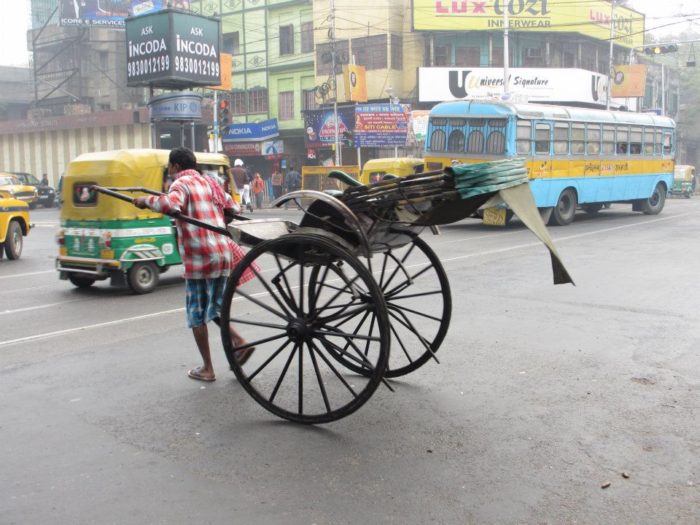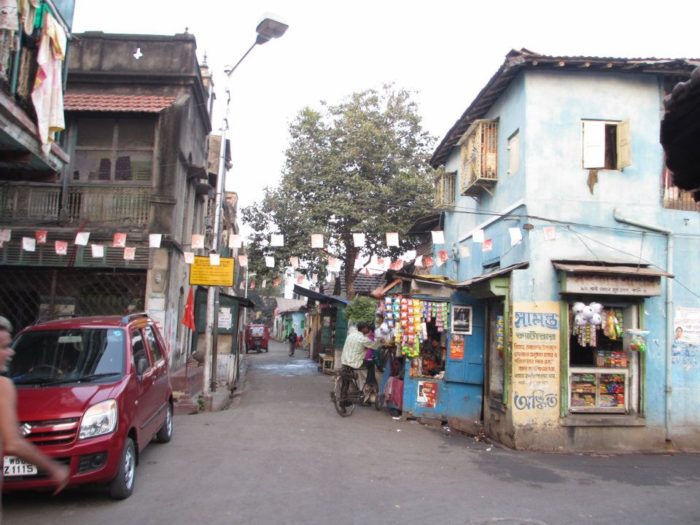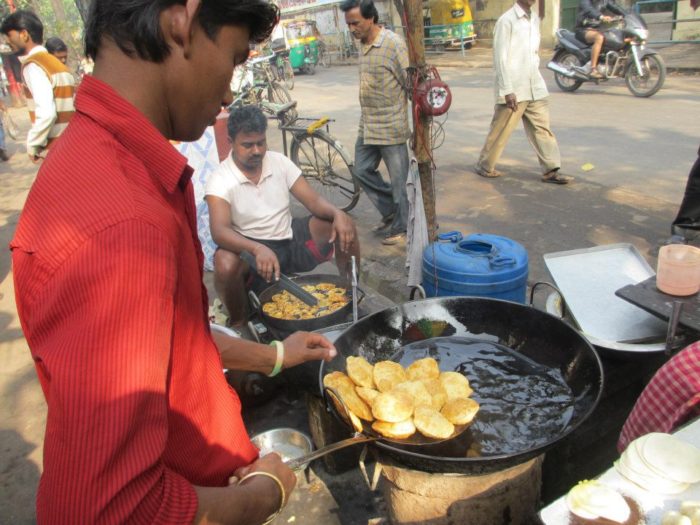
Photo by Partha Banerjee
Of course, Calcutta is now officially renamed as Kolkata. This is the name we have always used in the first place.
Those who have never been to that side of the world would have no way to know how different it is from here in the U.S. It is so fascinating!
Some people might argue that it is too noisy. It is too noisy, yes. Mics and loudspeakers are almost a routine part of life. If there is a festival of any kind, organizers would play some Bengali, or more often Hindi, songs. For those who live there, it is normal. But for outsiders — Indians from another town or village, let alone a foreigner, the noise could be difficult to deal with.
But it is only more prevalent during festive times, and that too with new regulations, present in certain areas at certain times. Otherwise, even in Kolkata, after-lunch and after-dinner hours could be very quiet, soothing, and settling. One can take a nap in his or her first or second-floor room, and quite enjoy a bicycle passing by with the rider ringing the old-fashioned bell. Or, perhaps a vegetable vendor or some other salesman occasionally oral-advertising his merchandise — and that too, with a melodious, characteristic tune.
Some people might find it difficult to walk on the streets because it is very crowded. In a big city like Kolkata, it is way too crowded. But that is out on the main streets and arterial roads. As soon as you get off the bus, taxi or electric tram, and enter your own residential alley, it’s a totally different solitude. You can walk down that seven-minute-long, winding alley from the bus stop to your home, and in some hours, you wouldn’t even find a soul anywhere. You might even catch a game of chess on a sidewalk porch: you can pause a while, and enjoy the never-ending, silent game between two eerily silent players, before you decide to walk back to your place again. A street dog named Kalu may receive you in front of your house; he knows very soon, he will get a few pieces of tea biscuits you’are going to throw from your second-floor veranda.

Photo by Partha Banerjee
Every little corner of the city of Kolkata has its own character. Some neighborhoods are mostly Bengali neighborhoods. Some are predominantly Hindi-speaking. Some are Punjabi. Some are Oriya — people who came to Kolkata from the neighboring state of Orissa. Oriya Brahmin cooks have always found jobs in a Bengali household, because of their dexterity in cooking. Especially when a mother is ill, or indisposed because of childbirth, Oriya cooks would be temporarily hired, and given responsibility of the entire kitchen. Sometimes, even when the mother comes back, the cook would be kept permanently, because by this time, he has proved to be indispensable for the family. And the man in the house finds his chicken curry unforgettable!
We had one such Oriya cook in our family when I was in high school. Sanatan-da (Brother Sanatan) worked in some store during the day, and came to cook for our large, joint household in the evening. We were at least ten or fifteen people at one point of time in our family: my parents, my father’s elder brother with his wife and two sons, and my uncles, nephews and nieces, some of whom were refugees from then East Pakistan (now Bangladesh). My father was always the one who would never turn anyone away; everybody knew they could find a place to live for a few months, or a few years depending on their ability to find a job in Kolkata, once they approached my father. He was the key man in our family.
My father was a kind man. But he was also a very strict man, when it came to our food habits. He was a stickler for healthy food. Kolkata is abundant and well known for its street foods — food vendors, fruit vendors, chat sellers with their burning charcoal oven to deep-fried fritters would roam our streets every evening. But no, if my father is nearby, you wouldn’t ever be able to buy anything from them. My cousins and I would sneak out once in a while to get a quick bite of the street chat: pakora, dahi bada, samosa, kulfi malai…and so much more!
We would sit down for our school work in the evening. No middle-class family would allow their children to do anything but study religiously for a few hours, before mother called them for dinner. Occasionally, we would hear a small girl practicing her Tagore songs on a harmonium two doors down.
Father would remind us that exams were coming up, and we should not get distracted by music, cinema, or such things. He would make sure we did not get sick eating junk food, especially before the annual exams.
So much fun were those days!
###

Photo by Partha Banerjee
